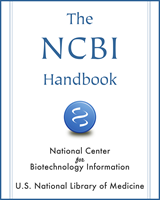BMME 8053 - Introduction to Bioinformatics
Introduction to Bioinformatics
BMME 8053
Fall 2025
The primary goal of this course is to introduce the field of bioinformatics and to familiarize yourself with working in the UNIX/LINUX environment, standard DNA sequence analyses, and online database resources. There will be an emphasis on hands on practice and use of computer and online resources through the guidance of the instructor.
Required Textbooks:
- The student will need a computer with privileges to install software. Use of an Apple is recommended.If the student has a PC, it will need to have additional software installed. Students with Windows 10 can install a LINUXshell directly. Alternatively, students can use the program, Cygwin, to allow access to a UNIXinterface. Instructions for installing Cygwin and Windows 10 LINUXshell will be provided in the course.
- Practical computing for biologists (Haddock, S.H.D., & Dunn C.W. (2011), N0. 57: 004 HAD) - Recommended text
- The NCBI Handbook – Available free online at https://www.ncbi.nlm.nih.gov/books/NBK21101/
- Weekly reading assignments and instructional videos will provided during the course.
-
Practical Computing for Biologists by Steven H. D. Haddock; Casey W. Dunn Practical Computing for Biologists is an effective guide to using the many freely available computing tools in order to work more powerfully and effectively. This text helps readers to overcome the most frustrating aspects of data processing to focus on the pleasures of scientific inquiry.Although many of the techniques are relevant to molecular bioinformatics, the motivation for the text is much broader, focusing on topics and techniques that are applicable to a range of scientific endeavors.
Call Number: QH324.2 .H33 2011ISBN: 9780878933914Publication Date: 2010-11-05
- Use basic computer programming skills to manipulate DNA sequence data.
- Locate the appropriate online database for acquiring molecular sequence data.
- Apply the appropriate bioinformatics analyses to address real biological questions.
- Understand some of the larger questions and issues within bioinformatics.
- Read and summarize primary literature within the bioinformatics field.
Library Quick Search
Search our library resources by selecting an option below:
 Search Full Text Finder to find the full text of a publication.
Search Full Text Finder to find the full text of a publication.
If you see an embargo next to a e-journal title: An embargo period is a period of time which an official academic publication is not yet available online, either due to publishing restrictions or subscription contracts. Ex: "Embargo: 1 Year" = access begins one year ago from today's date.

|
Databases: search for articles, datasets, and videos on your topic |
|
|
View Databases by Subject OR All Databases |
|
 Search NSUWorks - NSU's Institutional Repository:
Search NSUWorks - NSU's Institutional Repository:
Browse or search scholarship in Digital Commons @ NSUWorks!
 Find Research Tips and Useful Resources
Find Research Tips and Useful Resources
 Oceanographic Campus Library Guides
Oceanographic Campus Library Guides
News, Events, & Training | Writing & Citation Style | Course Guides | Browse by Subject | How-To Guides | LibraryLearn : Short Video Tutorials | Razor's Research Bytes

NSU Oceanographic Campus Library, 8000 North Ocean Drive, Dania Beach, Florida 33004
(954) 262-3699 | oclibrary@nova.edu | Hours | NSU Libraries
- Last Updated: Aug 12, 2025 12:17 PM
- URL: https://libguides.nova.edu/bioinformatics
- Print Page


